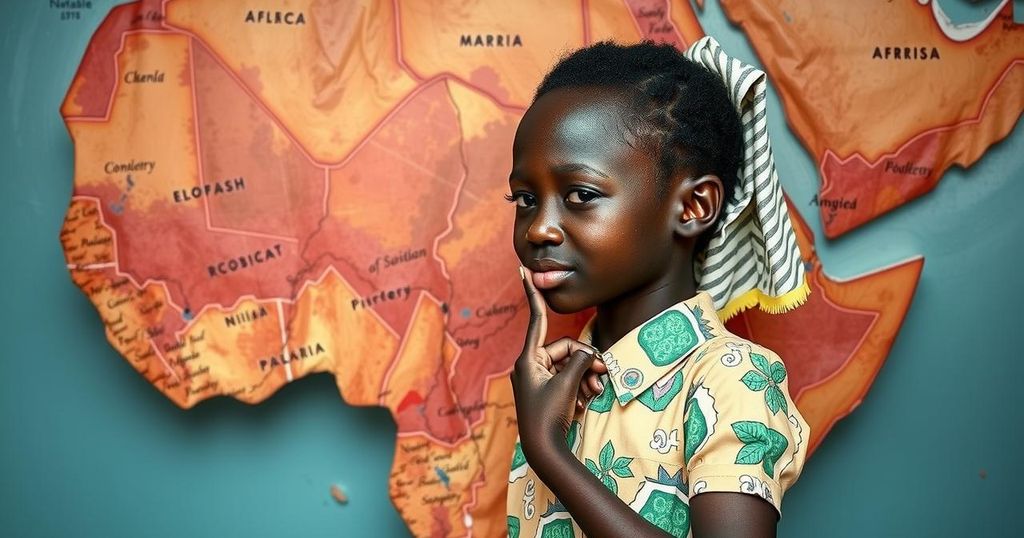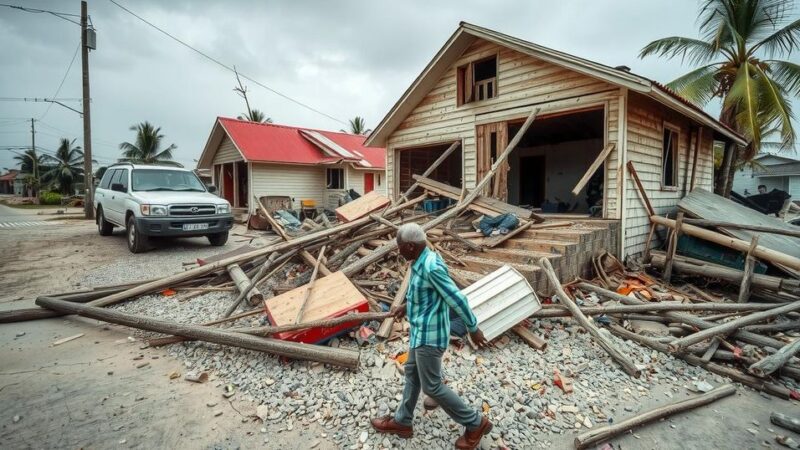Central African nations are facing profound crises due to climate shocks, humanitarian issues, and political divisions, with over three million people displaced this year. The UN emphasizes the need for greater international support and climate financing. Electoral assistance requests reflect regional trust in the UN, while collaborative efforts continue to resolve security threats. A summit is planned for 2025 to address these pressing challenges further, aiming for a future of peace and prosperity.
Central African nations continue to contend with multiple crises, including security threats, severe weather conditions, and political issues, according to a senior United Nations official. Abdou Abarry, the UN Special Representative for Central Africa, reported to the Security Council that these challenges have displaced over three million individuals this year, exacerbating an already delicate socio-economic environment and underscoring the critical necessity for enhanced climate action.
In his address, Mr. Abarry emphasized the importance of the Congo Basin forest, which plays a vital role in global climate regulation by absorbing substantial amounts of carbon dioxide. Despite its significance being acknowledged at COP29, he highlighted that international climate financing remains severely insufficient, with less than 15 percent of financial commitments being realized.
Furthermore, humanitarian conditions are deteriorating in the region, primarily due to population displacements and emerging health threats, including Mpox in the Democratic Republic of Congo. Mr. Abarry urged the international community to increase its efforts, warning that the existing level of assistance does not align with the staggering needs present in Central Africa.
Addressing electoral matters, Mr. Abarry informed the Security Council of the legislative elections held in Rwanda in July and highlighted the preparations for upcoming elections in Burundi, Cameroon, Gabon, and the Central African Republic, among others. He noted that countries such as Chad and Gabon have sought electoral assistance from the UN, illustrating a continued trust in the organization.
In terms of regional peace and security, Mr. Abarry called attention to ongoing insurgent threats in the Lake Chad Basin, particularly from Boko Haram affiliates. He advocated for strengthening the Multinational Joint Task Force, which is crucial for regional security. Additionally, he pointed out peaceful dispute resolutions, such as Gabon and Equatorial Guinea’s decision to take their border dispute to the International Court of Justice.
Looking ahead, Mr. Abarry outlined strategic priorities for the region, including increased international funding for climate resilience, humanitarian aid, and peace initiatives. The UN Office for Central Africa (UNOCA) intends to support these developments, with a summit scheduled for February 2025 by the Economic Community of Central African States (ECCAS) aimed at addressing climate and humanitarian challenges. Conclusively, Mr. Abarry expressed optimism for the future, envisioning a landscape marked by peace, justice, and prosperity by 2025, supported by a revitalized multilateral effort aligned with the principles of the UN Charter.
The text highlights the complex and intertwined crises facing Central Africa, focusing on the impact of climate change, humanitarian challenges, and political dynamics. With significant displacement due to extreme weather events and security threats, the region’s socio-economic stability remains precarious. The UN’s role is underscored through its advocacy for improved climate financing and support across multiple fronts, including humanitarian aid and electoral assistance, indicating the broader implications for international cooperation.
The situation in Central Africa remains dire, marked by significant displacement, humanitarian needs, and the urgency for enhanced climate action and political stability. The UN’s call for increased international support emphasizes the necessity for collaborative efforts to address these multifaceted crises. Looking towards 2025, there is hope for improved conditions through strengthened partnerships and proactive initiatives, anchoring the region’s resilience amidst ongoing challenges.
Original Source: news.un.org







